This January Is Not Only A New Year But A New Decade, And So There Is Even More Pressure To “start
This January is not only a new year but a new decade, and so there is even more pressure to “start fresh,” change your life, and simply transform into an idealized version of yourself.
Please don’t feel pressured by this. Life is already difficult enough without stressing out over metamorphizing into a new person overnight. The best change comes slowly, so keep trying to add little bits of goodness and happiness to your life here and there, and most of all, be patient with yourself.
More Posts from Zella-rose and Others
Sometimes I forget about the magic. Like the moon and red leaves and how the apples grow again and again outside my windows.
Sabrina Ward Harrison (via julesofnature)
AvPD and healing self-esteem - tl;dr.
(Part of my ongoing series of posts on Avoidant Personality Disorder.)
AvPD disconnects you from others, from yourself, and from your feelings.
And that hurts. A lot.
It’s okay to try and fix it.
It’s okay to want to feel better.
And it’s okay to notice your feelings, even if they’re unpleasant.
When you feel judged on all sides, make a safe space for yourself. Find somewhere you can be totally alone and free of observation, like a private journal. Feel what it’s like to not have anyone looking over your shoulder -- maybe for the first time.
Explore your feelings. Get to know what you really think and want, when your opinion is the only one that matters.
When you can, be nice to yourself. Try giving yourself the benefit of the doubt.
Do things that feel good.
When you’re upset with yourself for messing up, consciously decide to look for things that you succeeded at instead. Make a list of wins.
Here’s how this relates to self-esteem.
When we describe what it feels like to have AvPD, it sounds like, “Everyone judges and hurts me.”
But people only have the power to decide how much we’re worth, because we aren’t taking charge of doing that ourselves.
When you reconnect with your feelings, create a judgment-free zone for yourself, and learn to treat yourself nicely, you’re giving value to yourself. You’re saying, “This matters. My feelings matter. I’m worth taking care of.”
Esteem means “favorable opinion or respect.” In the throes of AvPD, we survive on other people’s esteem for us -- it matters what they think, because that’s how we determine our self-worth. But when we shift to relying on self esteem, we can finally heal and begin to thrive.
When we give respect and value to ourselves, no one else can take it away.
And that’s why practicing self-care and self-kindness is so powerful and important.
(You can read more here, in the long version of this post.)
Stay close to people who make you feel like it’s okay to be yourself.
Yes! This is very important. Those thoughts are coming from your brain because of your brain -- not because of who you are.
Think of all the situations you've experienced in the last year. Think of how many things you survived or accomplished or created. (Seriously, do it!)
Did you feel victorious and strong at the time? That would have been a feeling that was relevant to the situation, caused by the situation.
But a lot of us didn't feel inspired and mighty because of our victories. A lot of us still felt inadequate and fearful and ashamed. We didn't celebrate. We weren't in the moment. Our feelings weren't happening because of our lives -- just because of our brains.
Those are arbitrary feelings. In a way, they’re not quite tied to reality. Because they aren't dependent on what actually happens.
And when you're able to recognize them as such, it's a little easier to think of them as just background noise. “Oh, I’m actually anxious no matter what is happening around me. I actually feel bad about myself no matter how my life is going.”
And that can give you the chance to see what other feelings you may be having, in response to the actual situation.
Emotions are things that live and breathe, flex and bend and run parallel and contradict each other. They’re messy and real. So if how you feel doesn’t actually change with the situation -- something’s probably stuck!
something i need to repeat to myself five billion times: feeling that you’re the worst person in the world is part of a symptom, not some unfortunate, ultimate truth. there is nothing personal about it, despite what your brain may tell you.
there’s no rule as to how big or how small you’re allowed to dream. if you just want a small home and an orange kitchen and four cats that’s just as reasonable of a goal to work for as a big new york penthouse. and if all you really want is a simplistic career that isn’t the center of your life then that’s just as valid as dreaming of becoming a famous fashion designer or ceo. i know everyone keeps urging you to dream big, but dreams can be as simple and small as you want. they’ll always be valid. you decide how you want to live and what kind of life you want, no one else.
Workbooks and Self-Help Books for Mental Illnesses & Symptoms
Hello everybody! I was just thinking about how I always recommend people who can’t get therapy to use workbooks, so I thought I’d make a quick list of some you could look at. I’m not comfortable recommending books for things I have not struggled with (like, if I was looking at the description of a book on OCD I’d have no idea if it was good or not) but I think I’ve covered a lot. Some of these are series which have workbooks for specific disorders like bipolar, etc., if you want to find some. Plus, you don’t have to be diagnosed with something to use a workbook if you think it’ll help you.
Workbooks are sometimes made to be done in conjunction with therapy, or something like that, but anyone can still get something out of them if you put in regular work and try to apply the skills.
I’ve linked them all the Amazon because they’re usually cheaper on there.
For reference: DBT = dialectical behaviour therapy, CBT = cognitive behavioural therapy, ACT = acceptance and commitment therapy
Anxiety, Depression, and Intrusive Thoughts
The CBT Anxiety Solution Workbook
The Anxiety and Worry Workbook
The DBT Skills Workbook for Anxiety
The Anxiety Toolkit
Depressed and Anxious: The DBT Workbook
The Mindfulness and Acceptance Workbook for Depression
The Cognitive Behavioural Workbook for Depression
Overcoming Unwanted Intrusive Thoughts
The Anxious Thoughts Workbook
Borderline Personality Disorder
The BPD Survival Guide
Stronger Than BPD
You Untangled
Mindfulness for BPD
The BPD Toolbox
Beyond Borderline: True Stories of Recovery
Interpersonal Problems
The Interpersonal Problems Workbook
ACT for Interpersonal Issues
Anger
The DBT Skills Workbook for Anger
The Anger Workbook for Teens
Anger Management for Everyone
ACT on Life Not on Anger
Trauma and PTSD
Overcoming Trauma and PTSD
The PTSD Workbook For Teens
The Complex PTSD Workbook
You Empowered
Self Harm
Freedom from Self harm
Stopping the Pain: A Workbook for Self-Injury
Rewrite: The Journey from Self-Harm to Healing
General Emotional Issues/Multiple Disorders
Letting Go of Self-Destructive Behaviors: A Workbook
The DBT Skills Workbook
Don’t Let Emotions Run Your Life
The Mindfulness Solution for Intense Emotions
The Mindfulness-Based Emotional Balance Workbook
Thoughts and Feelings: Taking Control of Your Moods Workbook
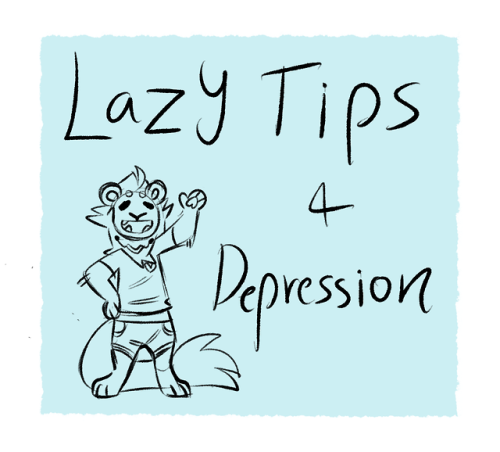
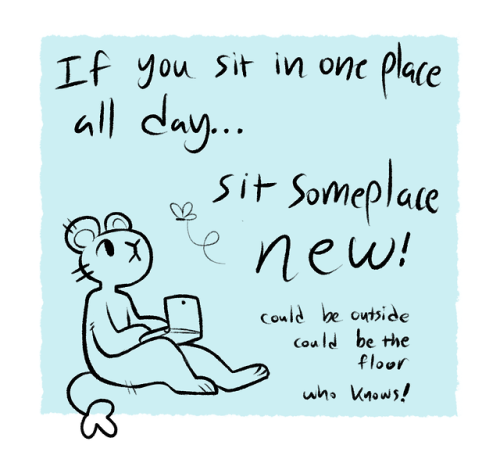
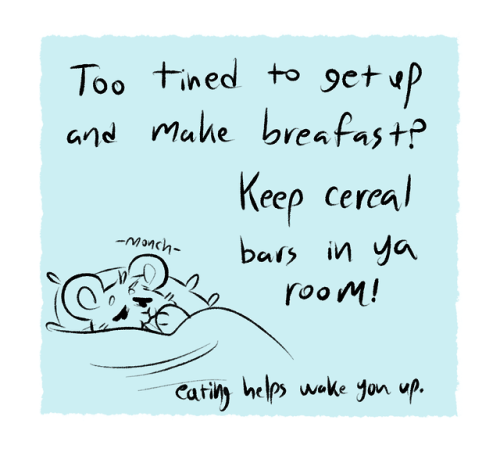
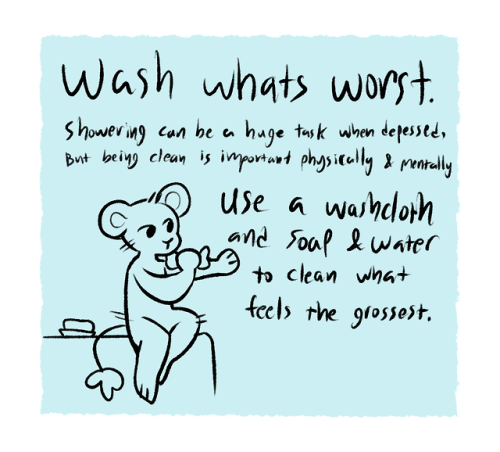


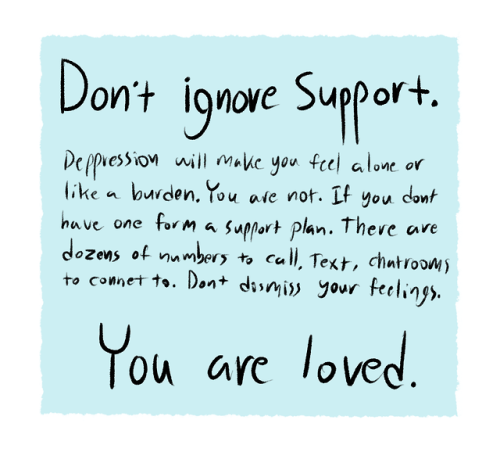
tips n tricks for cool kids Add your own tips if you got em!

I just like this article a lot. ❤️ I know I’m not the only one having a difficult time right now, so maybe it will help somebody out there.
This is worth doing, no matter what outwardly-visible, culturally-acknowledged things I do or don’t achieve.
This is worth doing just for me.
a healthy habit I’ve adopted recently is asking myself “how is this serving me”. I take this approach mostly when I’m scrolling through social media but it works for me in other aspects of life as well, such as when staying up late reading. Or what I’m feeding myself, sometimes it IS having that butter & honey on my fruit toast or having those cookies if it nourishes my soul. But having that question “how is this serving me” also lets me be conscious of how I am spending my time & resources. It allows me to tune into my goals and each step that either brings me closer or further from these
-
 girl-aging liked this · 3 years ago
girl-aging liked this · 3 years ago -
 medenka liked this · 3 years ago
medenka liked this · 3 years ago -
 a-humanoid-disguise liked this · 4 years ago
a-humanoid-disguise liked this · 4 years ago -
 cutemercutio liked this · 4 years ago
cutemercutio liked this · 4 years ago -
 cromodinamica liked this · 4 years ago
cromodinamica liked this · 4 years ago -
 creator-indy liked this · 4 years ago
creator-indy liked this · 4 years ago -
 atomicsaladwolfgoth liked this · 5 years ago
atomicsaladwolfgoth liked this · 5 years ago -
 ben-phantomhive liked this · 5 years ago
ben-phantomhive liked this · 5 years ago -
 lindztxt liked this · 5 years ago
lindztxt liked this · 5 years ago -
 takemetowonderlandnow liked this · 5 years ago
takemetowonderlandnow liked this · 5 years ago -
 road-work-ahead123 liked this · 5 years ago
road-work-ahead123 liked this · 5 years ago -
 anyasronan liked this · 5 years ago
anyasronan liked this · 5 years ago -
 celeste-tyrrell liked this · 5 years ago
celeste-tyrrell liked this · 5 years ago -
 honeydewey liked this · 5 years ago
honeydewey liked this · 5 years ago -
 sunshineistoofuckingbright liked this · 5 years ago
sunshineistoofuckingbright liked this · 5 years ago -
 nightconsumeslight liked this · 5 years ago
nightconsumeslight liked this · 5 years ago -
 awanderinglostsoul liked this · 5 years ago
awanderinglostsoul liked this · 5 years ago -
 occassionalfanficwriter reblogged this · 5 years ago
occassionalfanficwriter reblogged this · 5 years ago -
 occassionalfanficwriter liked this · 5 years ago
occassionalfanficwriter liked this · 5 years ago -
 takemeawaytoparadise liked this · 5 years ago
takemeawaytoparadise liked this · 5 years ago -
 megrimwolds liked this · 5 years ago
megrimwolds liked this · 5 years ago -
 theproxy066 reblogged this · 5 years ago
theproxy066 reblogged this · 5 years ago -
 theproxy066 liked this · 5 years ago
theproxy066 liked this · 5 years ago -
 lesbianheddagabler reblogged this · 5 years ago
lesbianheddagabler reblogged this · 5 years ago -
 kelpiemomma liked this · 5 years ago
kelpiemomma liked this · 5 years ago -
 softer-at-night reblogged this · 5 years ago
softer-at-night reblogged this · 5 years ago -
 edenavari reblogged this · 5 years ago
edenavari reblogged this · 5 years ago -
 edenavari liked this · 5 years ago
edenavari liked this · 5 years ago -
 daisycassy liked this · 5 years ago
daisycassy liked this · 5 years ago -
 brightreyoflight reblogged this · 5 years ago
brightreyoflight reblogged this · 5 years ago -
 sunflower-sonder liked this · 5 years ago
sunflower-sonder liked this · 5 years ago -
 searchingforbeautiful reblogged this · 5 years ago
searchingforbeautiful reblogged this · 5 years ago -
 bb8-boppity-boo reblogged this · 5 years ago
bb8-boppity-boo reblogged this · 5 years ago -
 electronicmongerweaseloaf liked this · 5 years ago
electronicmongerweaseloaf liked this · 5 years ago -
 babblingblog liked this · 5 years ago
babblingblog liked this · 5 years ago -
 lvnariley reblogged this · 5 years ago
lvnariley reblogged this · 5 years ago -
 rhymingteelookatme liked this · 5 years ago
rhymingteelookatme liked this · 5 years ago